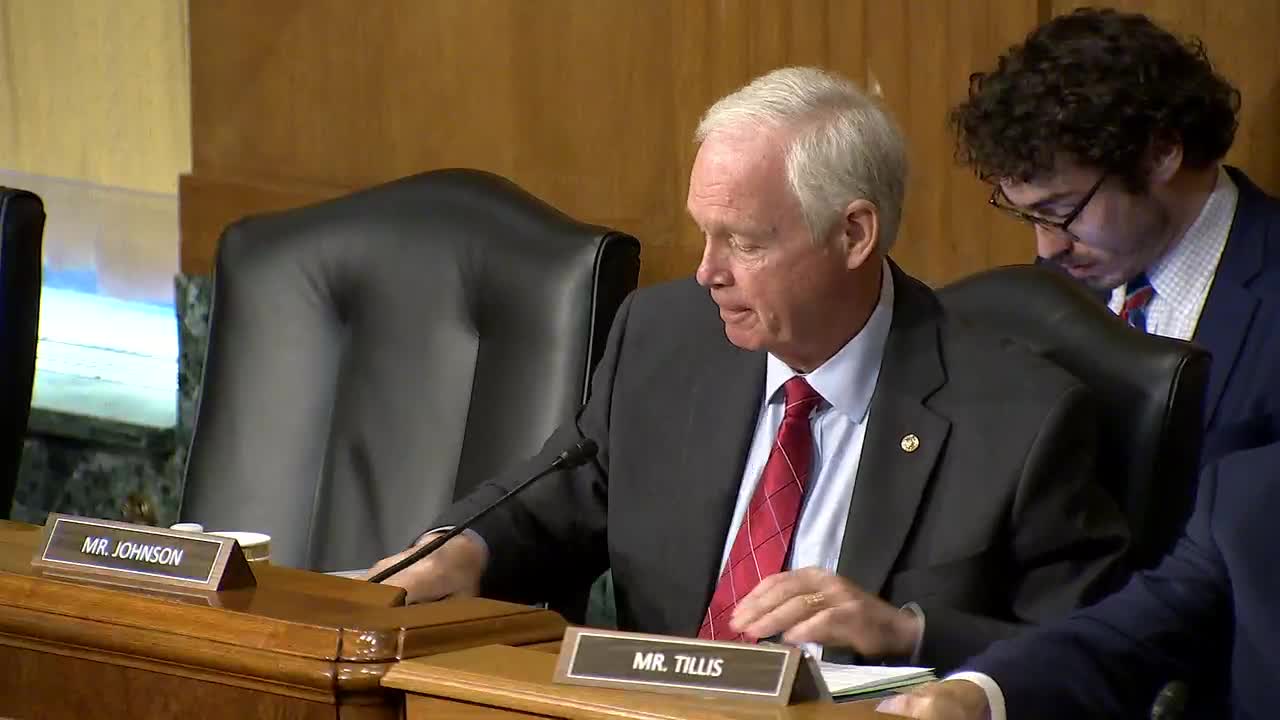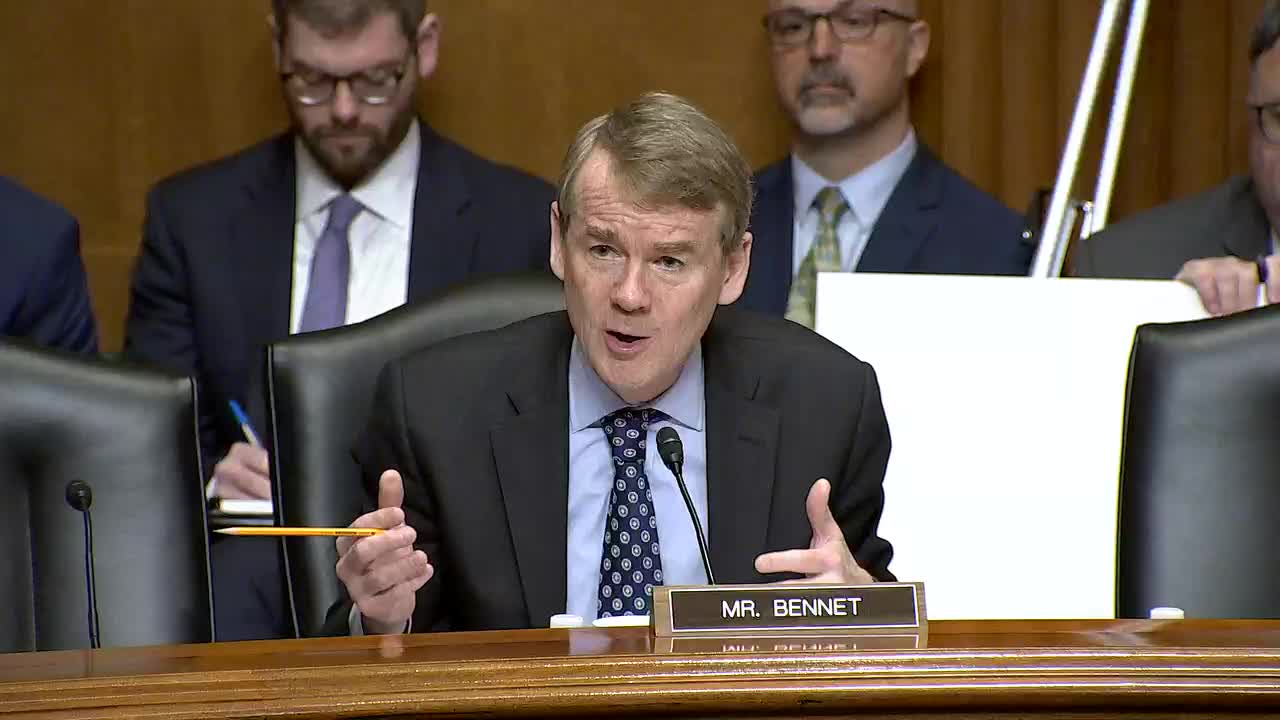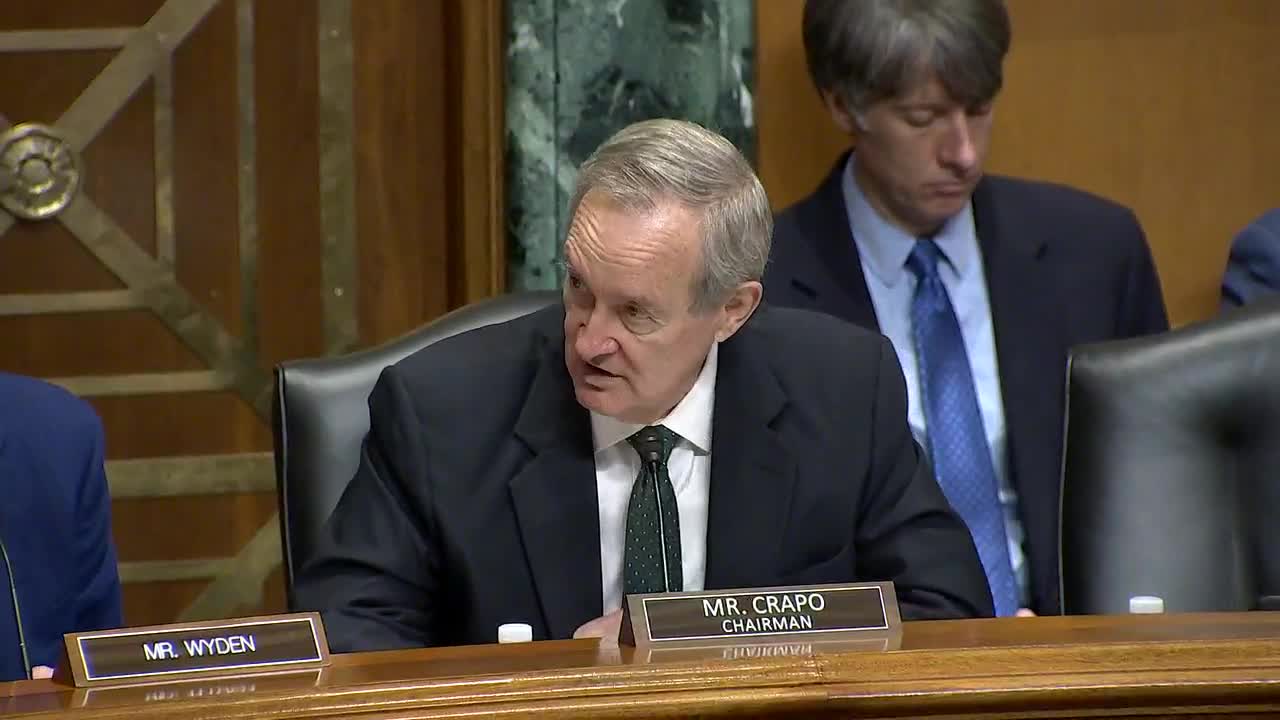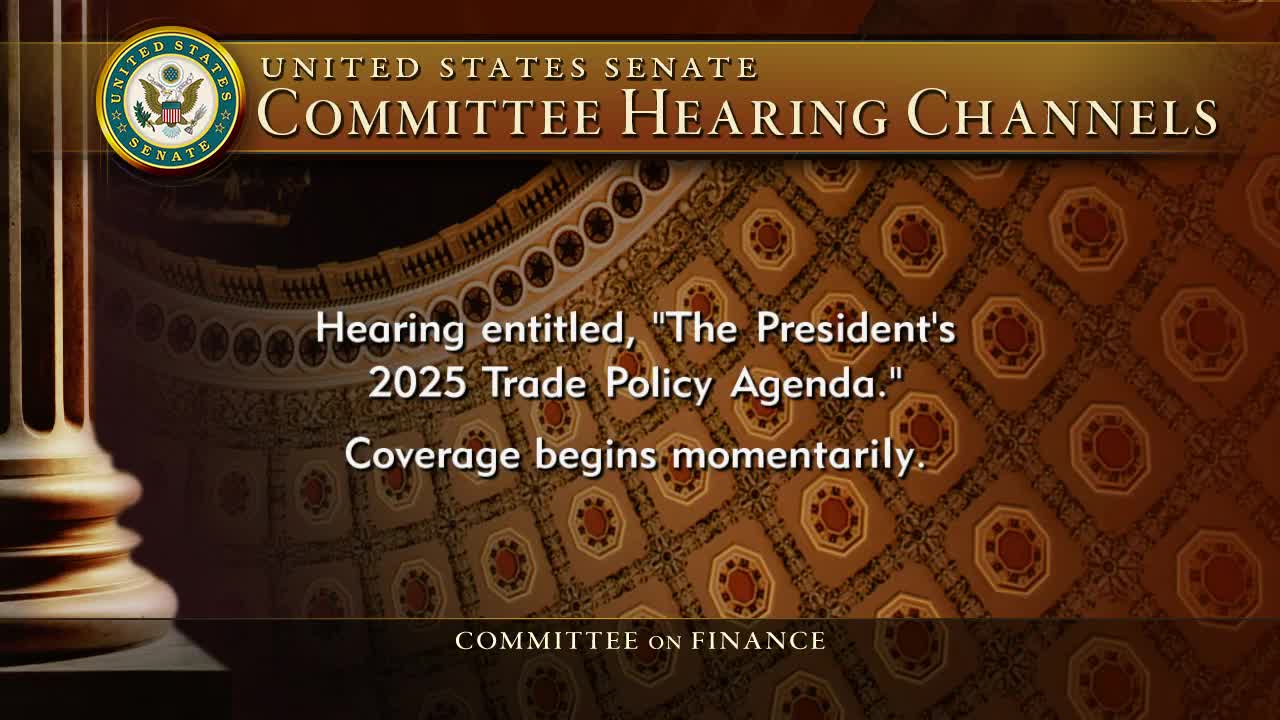Article not found
This article is no longer available. But don't worry—we've gathered other articles that discuss the same topic.

USTR says semiconductors, pharmaceuticals handled separately; senators seek clarity on exclusions and reshoring incentives

Senators question legality and consultation on emergency tariff order; USTR says staff held 200+ Hill meetings

Senators press USTR on immediate economic pain: 401(k) losses, small businesses, farmers and tourism sectors raise alarms

